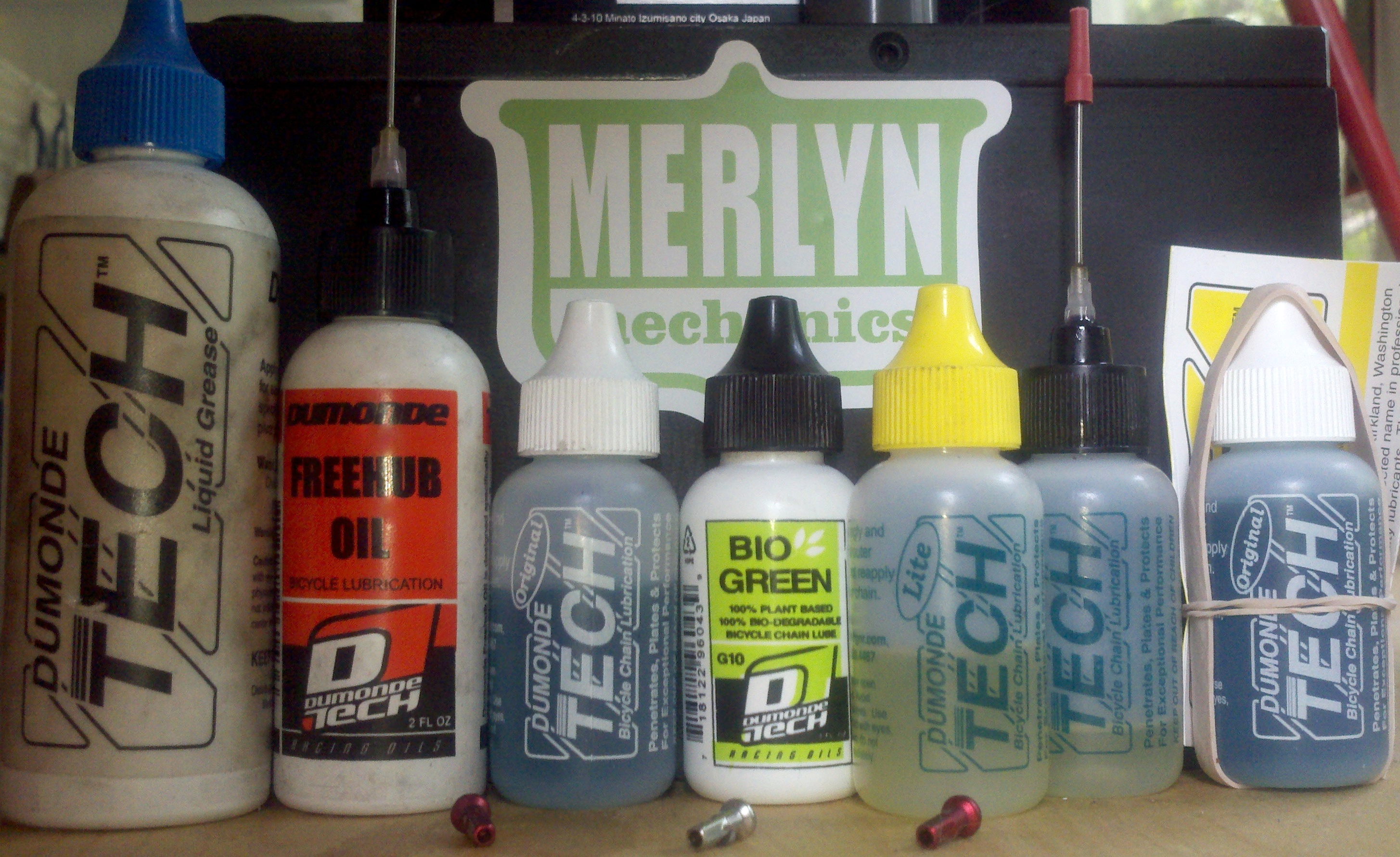 I must say that the amount of lube on peoples chains of late kind of makes me wonder who is giving the directions for applying lube to chains, or if anyone is. The idea is to lube your chain but not put on so much that it will drip off your chain or splatter all over your wheels and legs. The other problem with too much oil is that it attracts dirt and dust and all around road grime. This not only makes your chain dirty but it pisses off your mechanic because it makes him/her dirty too. Dirty chains wear out faster as well.
I must say that the amount of lube on peoples chains of late kind of makes me wonder who is giving the directions for applying lube to chains, or if anyone is. The idea is to lube your chain but not put on so much that it will drip off your chain or splatter all over your wheels and legs. The other problem with too much oil is that it attracts dirt and dust and all around road grime. This not only makes your chain dirty but it pisses off your mechanic because it makes him/her dirty too. Dirty chains wear out faster as well. During a race in NY I stopped for a rider who had dropped his chain. He had enough lube on his chain to last him and everyone he knew for the rest of their lives. It was wet and jet black. He argued with me about getting off his bike so that I could safely and quickly get his chain back on. I always win that argument. A few seconds later I told him to get back on his bike and ride. Normally we give the rider a nice push to get them started. And that guy was no exception. There is more than one disadvantage to a head to toe white kit. He looked great riding off with a jet black handprint on his lower back.
When lubing a chain on a bike I use Dumonde Tech lubes. They work the best and they make lubes for many bicycle applications. I put a drop on the top of each link. I then pedal the bike for about 2 minutes. I then pour some rubbing alcohol into a clean rag then pedal the bike with the rag around the chain. It only needs to go through the rag a few times. This removes any lube on the outside of the chain. Chains work best if the lube is on the inside of the chain and not on the outside. One does not need to lube ones chain more than once every 2 to 3 weeks. If you get caught in the rain then you may want to lube it when you get home but go ahead and wipe it off with rubbing alcohol. Don’t worry it won’t rust. So don’t be that guy with the handprint on his back. Lube your chain right the first time.